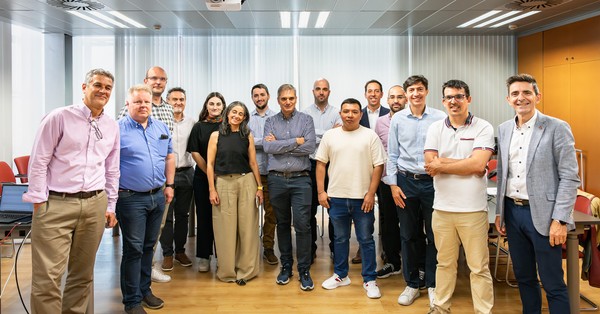A new consortium is set to explore how 5G services can support drone operations in rural areas. Led by Skyports Drone Services and funded by the UK Space Agency, the Connectivity for Remote Orkney Future Transport (CROFT) project will investigate how space technologies can enable 5G-powered drone deliveries for remote island communities in Orkney, Scotland.
Consortium Partners Collaborate for 5G Drone Solutions
The project unites Skyports Drone Services, Satellite Applications Catapult, Hydrogen Aircraft Services Limited, Cranfield University, and West Midlands 5G. This collaboration aims to assess the feasibility of 5G-powered drone deliveries to enhance access and connectivity for Orkney’s remote communities.
Sky5: Developing 5G-Enabled Drone Services
The 22-month-long project focuses on developing Sky5, a 5G-enabled drone service. This service will provide the low-latency, high-density communication required for uncrewed aerial vehicles (UAVs). The project will also define the functional and performance requirements needed to create scalable, 5G drone deliveries in challenging rural environments.
Innovative Solutions for Orkney’s Remote Communities
CROFT will demonstrate how innovation-led services can benefit isolated communities like those in Orkney.
Alex Brown, Director of Skyports Drone Services, highlighted the potential of 5G, stating, “The roll-out of 5G presents a huge opportunity for drone operations. With 5G, we’re unlocking advanced capabilities, benefitting from rapid data exchange between our remote operations center and the aircraft. We stay connected to our aircraft at all times using both satellite connectivity and cellular signals. This is critical for our Beyond Visual Line of Sight (BVLOS) flights, which allow us to reach more people and communities.”
Cranfield University’s Role in 5G UAV Research
Cranfield University will study the quality-of-service operations for 5G-enabled UAVs, using advanced space technologies to ensure safe and secure last-mile delivery solutions. The university’s experts will investigate how 5G technology can enhance UAV performance and reliability in various operational scenarios. They will also organize workshops to disseminate knowledge and promote 5G for air mobility solutions. Professor Saba Al-Rubaye, Chair of Telecommunications and Autonomous Systems at Cranfield University, stated, “We’re committed to pioneering research in telecom-enabled UAVs to revolutionize last-mile delivery, focusing on advancements in Air Mobility solutions. Our goal is to create reliable, sustainable, and efficient delivery solutions by harnessing cutting-edge space technologies.”
UK Space Agency Backs 5G Drone Innovation
Henny Sands, Head of Telecommunications at the UK Space Agency, commented, “The UK has always been at the forefront of scientific innovation, and we are focused on supporting British companies that continue that tradition. As the CROFT project shows, space technologies can help develop services that improve people’s lives, using drones with advanced satellite and 5G connectivity to deliver essential supplies to rural areas, often in challenging conditions.”
Strategic Funding and Program Support for CROFT
The CROFT project is funded by the UK Space Agency’s “Connecting People” Call, part of the European Space Agency’s (ESA) Advanced Research in Telecommunications Systems (ARTES) Telecoms Space for 5G & 6G Strategic Programme. This programme invited proposals from industry and academia to develop sustainable 5G/6G technologies, products, and services that benefit beyond the Space Sector.
Skyports’ Ongoing Efforts in Scotland
Scotland remains a focal point for Skyports’ drone delivery efforts. Since 2020, the company has completed several projects across the region to test the feasibility of deploying drones for middle- and last-mile logistics. This is Skyports’ second Orkney-based project, following the launch of inter-island drone deliveries for the Royal Mail in August 2023.
The CROFT project represents a significant step forward in utilizing 5G and space technologies for drone deliveries in remote areas. By bringing together leading experts and leveraging advanced technologies, this initiative aims to improve connectivity and access for isolated communities, setting a precedent for future innovations in rural logistics.







































